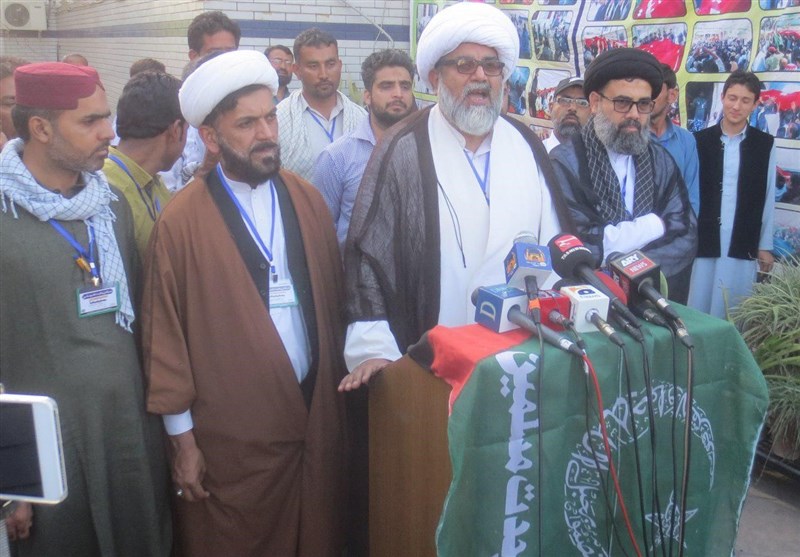
RNA – Speaking at the annual gathering Pakistan’s Majlis Wahdat-e-Muslimeen, Hujjat al-Islam Rajah Nasir Abbas Jafari, the secretary-general of the Shi’ah political organization, said that the present insecurity which exists in Pakistan is a result of the undue interference of the dictatorial leadership of General Zia al-Haqq from 1978 until 1988 who engaged in wrong policies in regard to the Soviet war in Afghanistan and this led to consequences and costs for the people of Pakistan.
The senior Pakistani Shi’ah cleric added, “Unfortunately, instead of using their power to frighten the enemies, government agencies have used their power to suppress the innocent people.”
He noted that Pakistan shouldn’t be part of a proxy war and must learn from past experiences.
Hujjat al-Islam Jafari criticized the Pakistan Muslim League, the current ruling party of Prime Minister Nawaz Sharif, of corruption and said that the Panama Papers case removes the veil from the true face of Sharif and added, “The Pakistani people expect all the stolen money to be returned to the state treasury.”
The secretary-general of the Majlis Wahdat-e-Muslimeen said that in countries which don’t claim to have Islamic governments, government figures do not hesitate to apologize to the whole nation over the slightest acts of corruption leads but unfortunately, this never happens in our society.
The Pakistani cleric said the silence of the international community, especially in regard to the oppressive actions carried out by India in Kashmir demonstrate that many people in the West have biased and prejudiced attitude toward Muslims.
In other remarks, Hujjat al-Islam Jafari condemned the mob lynching of Mashaal Khan, a journalism student at Abdul-Wali Khan University in Mardan in Khyber Pakhtunkhwa province by eight other students for allegedly publishing blasphemous content online and promoting the Ahmadiyyah sect.
“A person doesn’t have the right to take away the life of another person. There is no exception for those involved in this lynching,” he noted.
General Zia al-Haqq, who was said to be a supporter of an extremist ideology came to power via a coup d’état against Zulfiqar Ali Bhutto’s government in 1977.
He received assistance from many Western countries to strengthen the mujahidin fighting against the Soviet Union in Afghanistan and was heavily involved in the war.
In 1988, Zia al-Haqq was killed in a suspicious plane crash, along with a number of senior Pakistani generals.
His supporters claimed to find his body and he was buried in Islamabad’s Faisal Mosque.
112/930/404